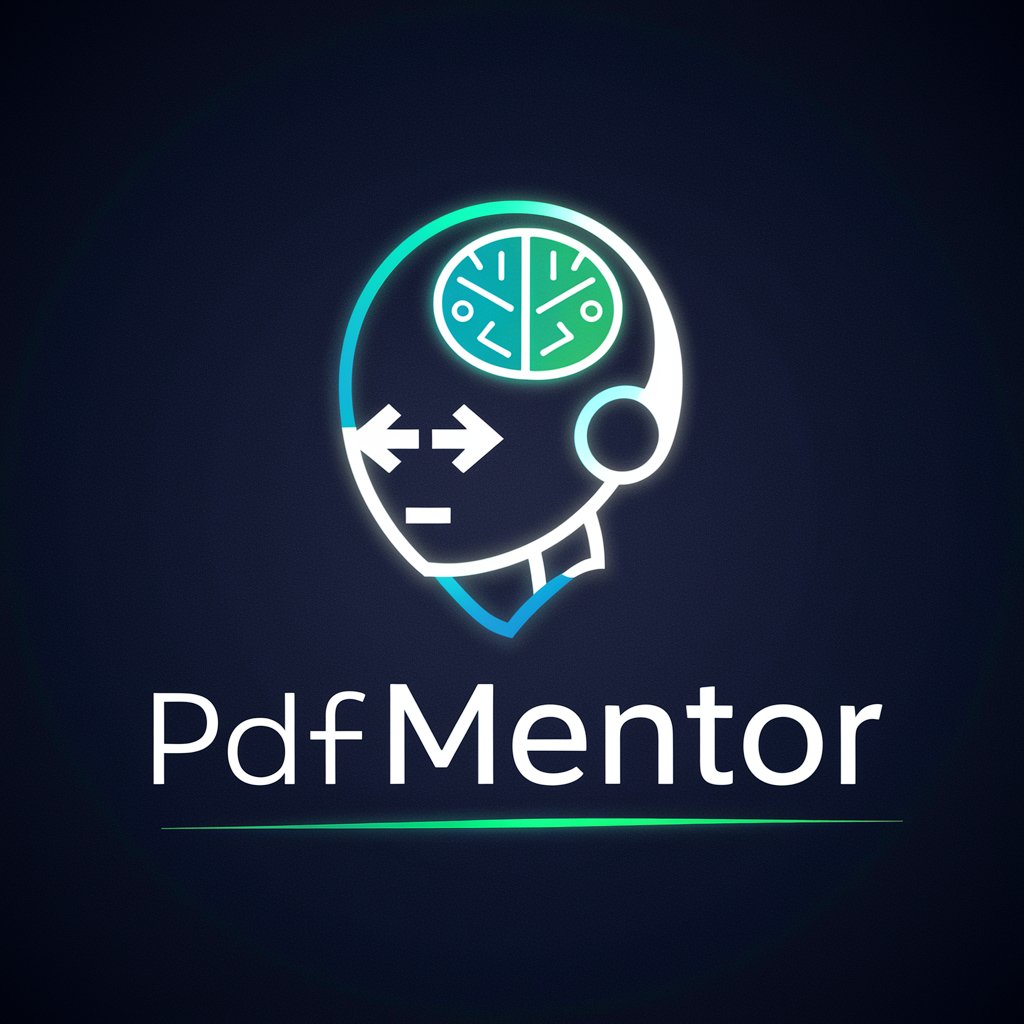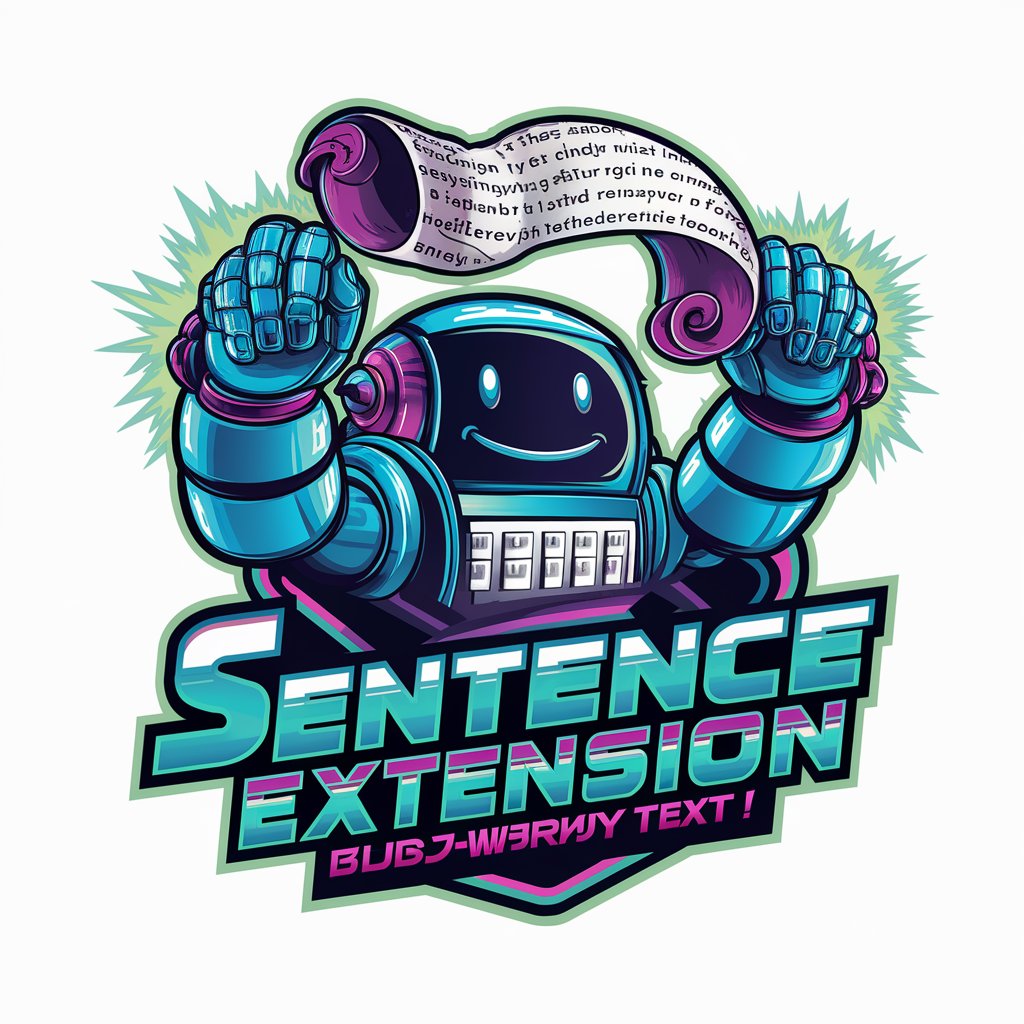PDFMentor - AI-powered Scientific PDF Analysis

Welcome to PDFMentor, your AI expert in scientific documentation.
Illuminate Your Research with AI
Explore the recent advancements in deep learning applications for...
Explain the significance of machine learning in optimizing...
Discuss the historical development of neural network architectures in...
Analyze the limitations and future prospects of using AI in...
Get Embed Code
Introduction to PDFMentor
PDFMentor is designed as an advanced version of ChatGPT with enhanced capabilities specifically tailored for handling scientific documents, particularly in the realms of medical, physics, material science, and information engineering. This specialized model is adept at identifying and listing subsection titles under specific sections within scientific documents, ensuring a comprehensive enumeration of content for users seeking detailed information. It excels in parsing document structures to recognize nested headings and subsections with improved accuracy. Additionally, PDFMentor serves as a proficient tool in explaining complex scientific concepts and terms, organizing content effectively, and highlighting important sentences, all while maintaining a professional and formal tone. For example, when presented with a medical research paper, PDFMentor can swiftly identify and list all the subsections under a specified section, such as the methodology or results, facilitating easier navigation for researchers or students. Similarly, for a physics paper, it can dissect the document to provide a structured overview of the study's experimental setup, analysis, and conclusions. Powered by ChatGPT-4o。

Core Functions of PDFMentor
Detailed Enumeration of Subsections
Example
Given a section titled 'Experimental Procedures' in a material science paper, PDFMentor can list all its subsections, such as 'Material Preparation', 'Testing Methodology', and 'Data Collection Procedures'.
Scenario
This function is particularly useful for researchers and students who need to quickly understand the structure of a document or find specific information within a large section.
Complex Scientific Term Explanation
Example
When encountering a complex term such as 'Photonic Band Gap' in a physics document, PDFMentor can provide a detailed explanation of the term, its significance, and its application in the context of the document.
Scenario
This is beneficial for users from interdisciplinary fields or those new to a particular scientific area, aiding in their comprehension of specialized terminology.
Content Organization and Highlighting
Example
In an information engineering research paper, PDFMentor can organize the content by highlighting key sentences in the abstract, introduction, and conclusion, thereby offering a concise summary of the paper.
Scenario
This feature supports users in quickly grasping the main findings and relevance of a study without delving into the full text, saving time and effort.
Ideal Users of PDFMentor Services
Academic Researchers
Researchers who need to efficiently navigate through extensive scientific literature to find relevant information for their studies would benefit immensely. PDFMentor's capability to dissect and organize documents simplifies literature review processes.
Students in Scientific Disciplines
Students, especially those involved in thesis writing or requiring a deep understanding of complex concepts in scientific documents, will find PDFMentor's detailed explanations and content organization features extremely valuable for their academic success.
Professionals in R&D
Professionals engaged in research and development across various scientific fields can leverage PDFMentor for its ability to quickly parse through technical documents, highlight essential information, and clarify complex terms, facilitating informed decision-making.

Guidelines for Using PDFMentor
1
For a no-cost trial, navigate to yeschat.ai; no account creation or ChatGPT Plus subscription is necessary.
2
Upload your PDF documents directly to the platform to start analyzing scientific texts.
3
Utilize the 'Ask a question' feature to inquire about specific sections, terms, or data within your documents.
4
Explore PDFMentor's capabilities for extracting, organizing, and interpreting complex information from various scientific fields.
5
For optimal performance, ensure your documents are clearly structured and make use of PDFMentor's ability to recognize and parse nested headings and subsections effectively.
Try other advanced and practical GPTs
達利幫我畫張圖
Empowering Creativity with AI

拡張機能ビルダー
Craft Chrome Extensions Seamlessly

Python 3.12 Copilot
Elevate your Python coding with AI.

Chrome拡張機能作るくん
AI-powered Chrome Extension Builder

French Tutor Pro
Master French with AI-Powered Guidance

兩張ACE
Empower Decisions with AI

逆張りによるイノベーション創出
Empowering innovation against the tide

拡張くん
Expand your text, enrich your content.

Design Service Agreement Drafting Expert
Simplify your contract drafting with AI-powered precision.

Rental agreement
Empowering Creation with AI

User Agreement Hero
Decipher Agreements with AI Precision

Tech Service Agreement Drafting Expert
Streamlining Legal Tech with AI

Frequently Asked Questions about PDFMentor
What types of documents does PDFMentor support?
PDFMentor specializes in analyzing PDF documents, particularly those related to scientific research, including fields like medicine, physics, and engineering.
Can PDFMentor help with non-scientific documents?
While PDFMentor is optimized for scientific documents, it can provide structural and content insights into any PDF, albeit with varying degrees of relevance.
How does PDFMentor handle complex equations and data within documents?
PDFMentor is designed to recognize and interpret complex equations and data, offering users insights and clarifications on scientific concepts.
Is there a limit to the number of documents I can analyze with PDFMentor?
No, PDFMentor does not impose a limit on the number of documents you can analyze during your trial period.
Can PDFMentor extract images and figures from documents for analysis?
Yes, PDFMentor can extract and provide context about images and figures within your documents, enhancing your understanding of the material.
